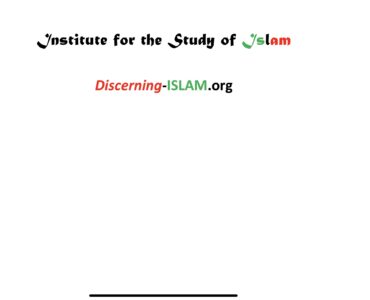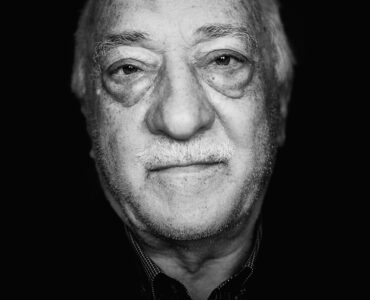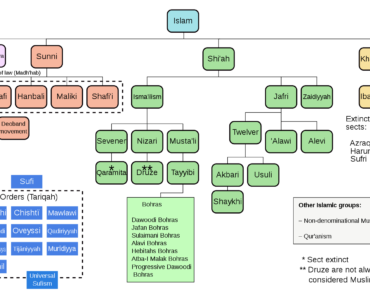
Moses
Moses (Ar., Mūsā), the most frequently mentioned of the Qurʿānic prophets, is attested to have lived during the pre-Islamic Pharaonic era of ancient Egypt. He also figures in Old and New Testament texts, and many Qurʿānic descriptions of his life complement their counterparts in the Bible. The Tawrāh (Torah), one of the five holy books mentioned in the Qurʿān, was revealed to him as well, as were the Ten Commandments. He is also referred to as Kalīm Allāh in Islamic tradition because of the honor he was shown by God’s speaking to him on Mount Sinai (sūrah Nisāʿ 4:164).
Moses is mentioned in thirty chapters and nearly 135 instances in the Qurʿān. He is the first prophet to be mentioned after Adam (Baqarah 2:51) and is recalled in numerous sayings of Muḥammad (aḥadīth). Moses’s significance in the Islamic context seems to derive primarily from the authenticity and continuity he lends to Muḥammad’s preaching and message. The two figures share many qualities: they are both prophets and statesmen, and their communities are primarily and distinctly associated with sacred law. The parallel experience of Moses and Muḥammad is further evidenced by the role Moses plays in the miʿrāj (ascent) journey of Muḥammad. It is Moses who advises Muḥammad to seek the lessening of the prayer requirement upon his community, citing his own past experience with the Israelites. Muḥammad also directly claimed rights over Moses, particularly in comparison to the Jews, in a well-known ḥadīth in which he argues that the Muslims should observe the fasts of ʿAshūrāʿbecause they are more rightfully related to Moses’s message.
One unique Qurʿānic addition to the Moses story that does not have an obvious biblical parallel is the encounter with the wise man al-Khidr (Kahf 18:66–82). In it Moses is sent on a quest to find the only human being on Earth who has more knowledge than himself. When Moses finds Khidr he asks the sage to take him as a disciple and teach him what he does not know. Khidr agrees on the condition that Moses not question his actions, a restriction he is not confident the student can successfully comply with. During their journey Khidr does three things that seem unjust, and each time Moses questions him. At last Khidr refuses to continue and explains the true nature of the events, revealing their actual correctness. The story is expounded upon in a number of aḥadīth. It becomes significant for later Islamic tradition as an example of the teacher-student relationship. For Ṣūfīs it becomes especially so, because they see in Moses an exemplar of the law and of outward, or exoteric, knowledge, yet showing the need to complement it with inner, or esoteric, knowledge.
Although born of the enslaved Israelites, the Qurʿānic Moses was brought up in the household of the Egyptian Pharaoh by the latter’s wife Asiya, who is regarded, in Islamic tradition, as god-fearing, pious, and among the four women guaranteed paradise. This contrasts with the biblical tradition in which Moses is raised by Pharaoh’s daughter. As a young man, Moses fled Egypt after unintentionally killing a man. Eventually, he came upon a settlement called Maydān and met the prophet Shuʿayb (the biblical Jethro), who married Moses to one of his daughters. Hi A decade after meeting Shuʿayb Moses traveled with his family, intending to return to Egypt. It is during this journey that he encountered the presence of God at Mount Sinai. It was there, in what the Qurʿān refers to as the valley Ṭuwā, that Moses had his first encounter with Allah and was commanded to begin preaching the divine message to Pharaoh and the Egyptian people.
When Moses entered Egypt again he demanded the release of the Israelites, counseled Pharaoh to retract his claims of godhead, and preached monotheism and allegiance to Allah above all humanity and creation. His conversation with Pharaoh is a central feature of the Qurʿānic narrative, and Pharaoh becomes a prominent historical-religious symbol of insubordinate polytheism and oppression, a trope later invoked, notably, by Arab-Muslim revivalists in the twentieth century. Defiantly, Moses led the Israelites out of Egypt and escaped via the Red Sea, which he parted in two with his rod, so that the people could walk upon the seabed to safety on the opposite coast. Pharaoh and his army attempted to pursue Moses but were destroyed when Allah allowed the sea to return and engulf them.
With the exodus from Egypt begins the second phase of Moses’s preaching. When the Israelites reached Mount Sinai, Moses entrusted the guidance of the community to his brother Hārūn (the biblical Aaron) and ascended to the spot where he had originally encountered Allah. It was at this time that Moses received the Ten Commandments. Upon his return Moses was angered to learn that in his absence the Israelites had turned away from Hārūn’s teaching and had begun to worship a calf fashioned from gold. The remainder of the desert journey was interrupted by periods of unfaithfulness, greed, and lax obedience. The fact that this second phase receives such exceptional attention in the Qurʿān and ḥadīth is taken, by Muslim scholars, to stand as a warming to the community of believers against succumbing to the same tribulations as the people of Moses. Thus, Moses’s life is not simply historical but, more properly and practically, admonishing.
On arriving at the outskirts of Canaan, the Israelites were faced with the task of fighting for the Promised Land against its current inhabitants, but they refused. Their unwillingness to strive for what Allah had commanded them to do was punished with forty more years of wandering in the desert. It was during this period that the prophet Moses died, having never entered the Promised Land.
Moses
621 – 010
Last Updated: 06/2021Copyright © 2017-2021 Institute for the Study of Islam (ISI) | Institute-for-the-study-of-Islam-org | Discerning Islam | Discerning-Islam.org | Commentaries on Islam | © 2020 Tips Of The Iceberg | © 1978 marketplace-values.org | Values In The Marketplace | are considered “Trade Marks and Trade Names” ®️ by the Colorado Secretary of State. All Rights Reserved.



